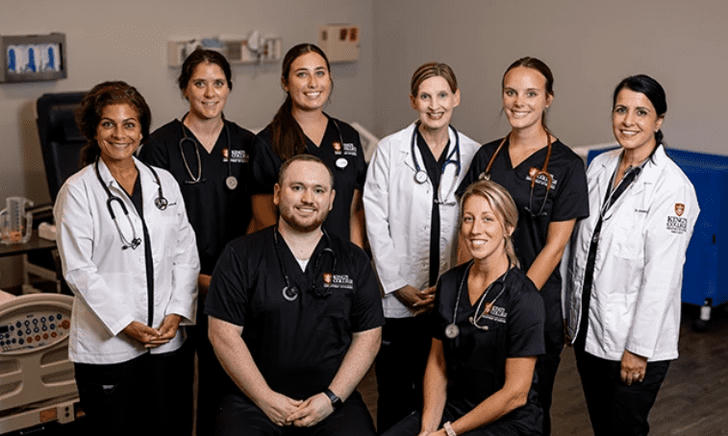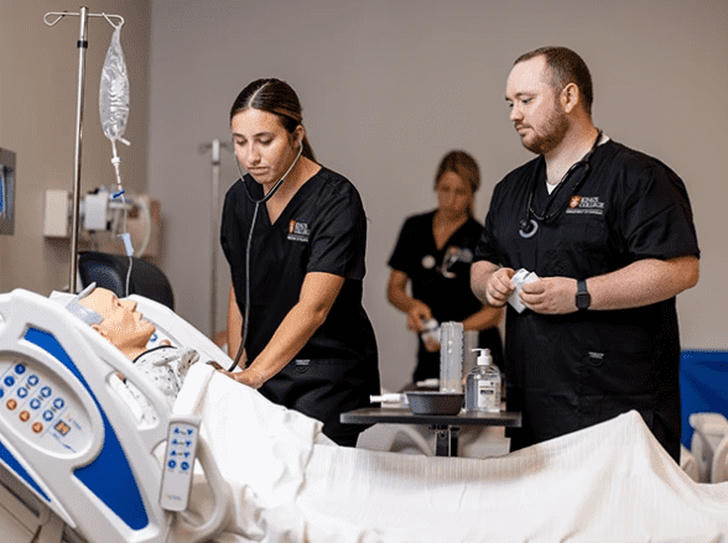From Aspiration to RN: How Employer-Sponsored Programs Make Nursing Dreams a Reality
The United States is facing a critical nursing shortage. According to the American Nurses Association, there will be an estimated 203,200 new RN positions opening annually through 2031, driven by an aging population and the retirement of experienced nurses. For many, becoming a registered nurse (RN) is a way to make a profound impact in healthcare, but the financial burden of nursing education often poses a significant obstacle. Employer-sponsored programs provide a valuable solution, offering aspiring nurses a pathway to achieve their dreams while securing meaningful employment.

What Are Employer-Sponsored Nursing Programs?
Employer-sponsored nursing programs are partnerships between healthcare organizations and educational institutions designed to train future nurses. These programs often provide tuition assistance, on-the-job training, and guaranteed employment upon graduation in exchange for a work commitment.
• Tuition Reimbursement: Employers pay part or all of the tuition for an accredited RN program.
• Work-Study Opportunities: Students gain experience working in healthcare settings while pursuing their degree.
• Commitment Contracts: Participants agree to work for the sponsoring organization for a set period post-graduation.
According to the American Hospital Association, more than 80% of hospitals offer some form of tuition reimbursement or financial assistance for nursing education, reflecting the widespread use of such programs. Additionally, a survey by the Society for Human Resource Management (SHRM) found that 56% of employers in healthcare fields provide educational benefits as part of their employee retention strategies.
Meet Jessica: A Success Story
Jessica, a 27-year-old single mother from Ohio, always dreamed of becoming a nurse but couldn’t afford the tuition for an RN program. After working as a certified nursing assistant (CNA) at a local hospital, she learned about their employer-sponsored nursing program and decided to take the leap.

Here’s how Jessica’s journey unfolded:
Starting Point:
Working as a CNA gave Jessica firsthand experience in patient care. Her employer, recognizing her potential, encouraged her to apply for their RN sponsorship program.
Application Process:
Jessica submitted an application that included a personal statement and recommendations from her supervisors. She was accepted into a local community college's Associate Degree in Nursing (ADN) program, fully funded by her employer.
Balancing Work and Study:
Jessica worked part-time shifts at the hospital, gaining invaluable hands-on experience while completing her online coursework. Her employer allowed flexible scheduling to accommodate her clinical rotations and exams.
Support System:
The program provided mentorship from experienced nurses and academic support through study groups and online resources.
Graduation and NCLEX-RN:
After two years of rigorous training, Jessica graduated and passed the NCLEX-RN exam on her first attempt.
Employment Commitment:
Today, Jessica works as an RN in the hospital’s surgical ward, fulfilling her three-year employment commitment. The experience not only launched her nursing career but also created a pathway for future opportunities, including earning a Bachelor of Science in Nursing (BSN).
Advantages of Employer-Sponsored Programs
Cost Savings: Reduce or eliminate tuition expenses, minimizing student debt.
• Hands-On Experience: Gain practical skills while studying, boosting confidence and competence.
• Job Security: Guaranteed employment after graduation provides stability.
• Mentorship: Receive guidance from seasoned professionals invested in your success.
• Career Advancement: Access opportunities for further education and specialization.
Challenges to Consider
While these programs offer immense benefits, they come with certain expectations:
• Time Commitment: Balancing work, study, and personal life can be demanding.
• Work Obligation: Participants must fulfill a contractual work period, limiting job mobility during that time.
• Competitive Admission: These programs often have limited spots, requiring strong applications.
How to Find Employer-Sponsored Nursing Programs
• Ask Your Employer: If you’re already working in healthcare, inquire about tuition assistance or sponsorship opportunities.
• Research Local Hospitals: Many hospitals partner with nursing schools to offer sponsored programs.
• Explore Apprenticeships: Some states have nursing apprenticeship programs that combine education and employment.
• Leverage Job Boards: Websites like Indeed or LinkedIn often list healthcare jobs that include educational benefits.
Conclusion
Jessica’s story is proof that becoming an RN is possible, even with financial or logistical barriers. Employer-sponsored programs provide a pathway to achieve professional and personal growth while meeting the ever-growing demand for skilled nurses. If you’re considering this route, start by exploring opportunities in your area. With determination and the right support, you too can turn your dream of becoming an RN into reality.
